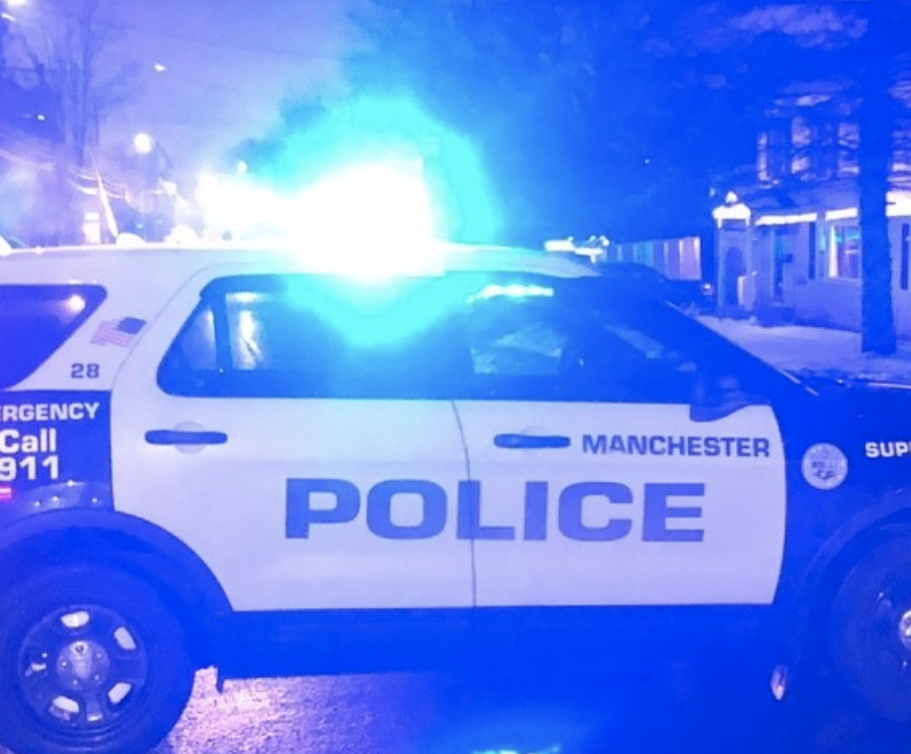Revolving Door Bail System Contributes to Crime Surge, Manchester Chief Says

Between April and December of last year, Manchester police arrested 700 familiar faces — they were all out on bail.
Manchester has also seen a spike in property crimes like car break-ins and thefts. City residents are speaking out about their concerns over public safety.
And the Queen City’s Police Chief Allen Aldenberg thinks he knows a major source of the problem: New Hampshire’s new bail reform law, which makes it easier for people to get released from custody after they are arrested.
“We need some kind of substantial change to hold people accountable,” Aldenberg told Drew Cline on Cline’s WFEA radio show.
Charges from the arrests include robbery, burglary, weapons charges, assault, and one murder, Aldenberg said. In September, homeless man Richard Moore, 40, was arrested after allegedly stabbing 75-year-old Daniel Whitmore, who was out for a walk near his Manchester home according to police reports. Whitmore lived close to a rail trail where he reportedly enjoyed walking, and which was close to a homeless encampment. Moore was on bail for two separate violent incidents when he allegedly killed the Manchester resident.
Aldenberg said police are arresting the same people over and over again, and they are simply put back on the street to re-offend.
“Something needs to change,” Aldenberg said.
New Hampshire changed its bail law in 2018 to make it easier for non-violent offenders to be released after their arrest. Instead, that well-intended reform has created a revolving door that leaves police scrambling to keep up, according to Aldenberg.
“The police department can only do so much,” he said.
Multiple bills in the state legislature are aimed at correcting the overreach of the bail reform law. Some seek to impose a temporary hold on people charged with serious, violent felonies. Another seeks to hold many of those same suspects while their trials are pending, which in some cases can take more than a year. Another proposal would take bail decisions away from bail commissioners, who often respond to arrests on nights and weekends, and require suspects to have a hearing before a judge.
New Hampshire’s historically low crime rate took an alarming turn last year with 27 murders. That was a huge spike compared to the 16 or so in 2020 and 2021. The Granite State usually averages 19 murders a year, making 2022 one of the deadliest years in recent memory.
With surging property crime and an increase in murders, New Hampshire seems primed to reform the 2018 reform. Democratic Manchester Mayor Joyce Craig testified in Concord last week that 2018’s bail reform has failed her city.
“While well-intentioned, the statutory changes made in the name of bail reform in 2018 have had negative consequences in Manchester,” Craig said.
Fixing the broken bail system is a bipartisan concern. Last week Londonderry Republican Sen. Sharon Carson, who chairs the Senate Judiciary Committee, said the current bail law is keeping dangerous criminals free, while law-abiding Granite Staters are at risk.
“What I am seeing is a revolving door,” Carson said. “That is not in the best interest of public safety and that is what we need to stop.”
Gov. Chris Sununu, who signed the 2018 bail reform bill into law, has been calling for a fix. Prior efforts at strengthening the bail laws were quashed when groups like the New Hampshire American Civil Liberties Union objected.
“You have the ACLU, these extreme left-wing groups that say they do not want to change anything,” Sununu said last year. “You have individuals that get arrested, they are getting out before the cop that arrested them has done the paperwork. It is messed up.”




